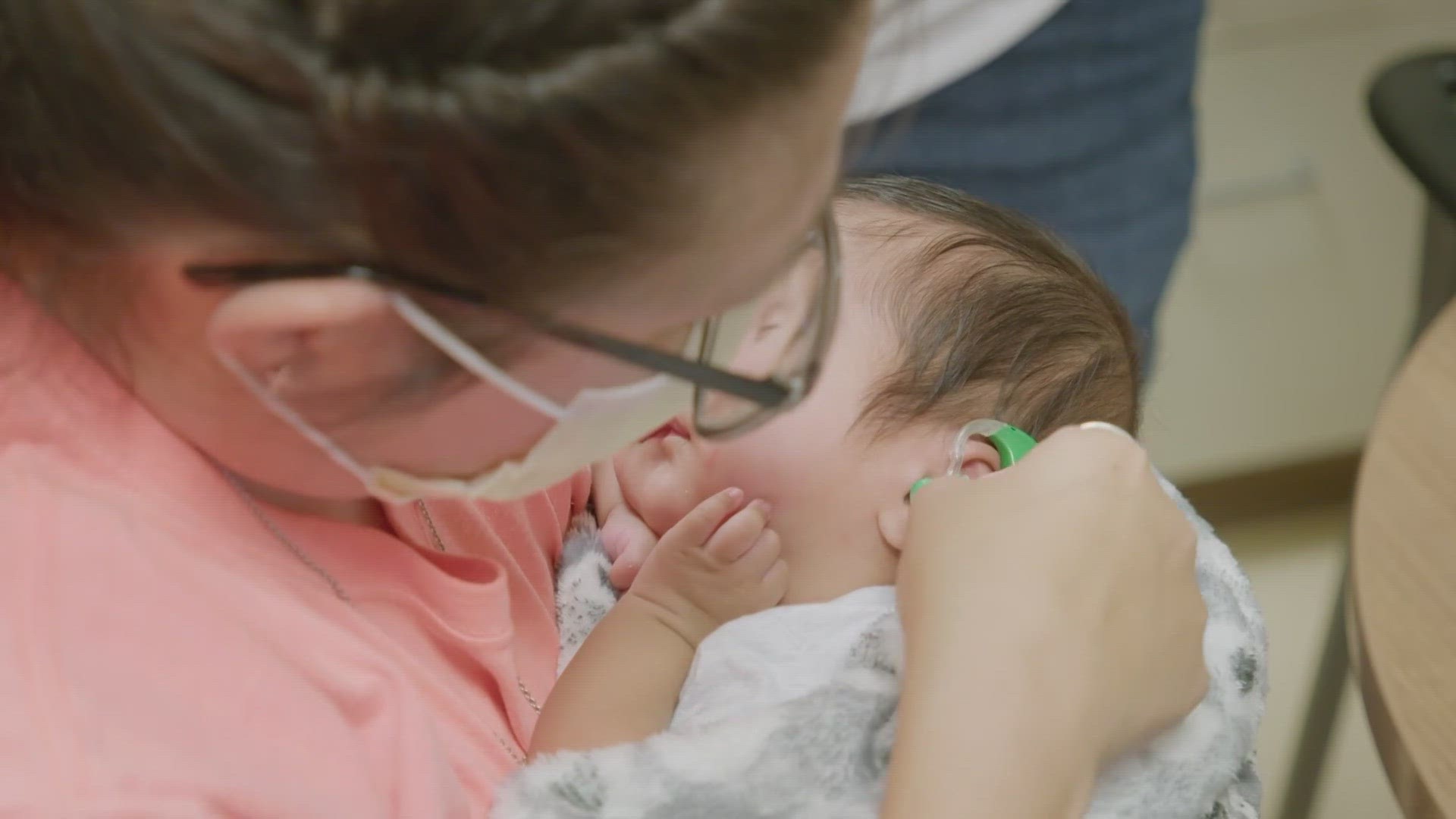SAN ANTONIO — Checking a newborn's hearing is mandatory in Texas. It usually happens in the first 48 hours after birth.
If a newborn has a certain level of hearing loss it can affect many aspects of their life including speech and language development, educational and psychosocial delays, and even reading. That's why treatment is needed as soon as the hearing loss is detected.
"He was two pounds, 12 ounces. And when they did his hearing test, they were saying that he wasn't able to hear what was going on," said mother Alexandria Zamora, whose son Jeremiah was born premature with substantial hearing loss. Eventually he was fitted with hearing aids. Zamora told us, "Its a good day because he gets to hear us. He's going to be able to hear us. So he'll be able to know what's going on." Robin Tellez, a University Health audiologist added, "Pretty much right at birth we can we can tell if a baby passes, fails the newborn hearing screening and or do further diagnostic testing."
The National Institutes of Health and CDC say 50% to 60% of hearing loss in babies is genetic. About 2 to 3 out of every 1,000 children in the U.S. are born with a detectable level of hearing loss in at least one ear. More than 90 percent of deaf children are born to hearing parents. And 25% or more of hearing loss in babies is due to "environmental" causes.
Having that follow-up appointment is extremely important. Tellez said, "That's why we need to get that outpatient follow up, get more information,. Is this a permanent hearing loss or is it something treatable?"
And if it is treatable there are several options.
Tellez told us, "Hearing aids is one of the first steps. "They may also be a candidate for what we call a cochlear implant. There's also what we call bone anchoring technology. So this would be babies who have where a traditional hearing aid is not going to be an option for them." Tellez told us sign language is also an option.
The CDC has plenty of information about hearing loss in children on their website.
For information about hearing loss and balance from University Health click here.
For more information about family health call 210-358-3045. You can also find the rest of Wear The Gown stories, just go to WearTheGown.com.

